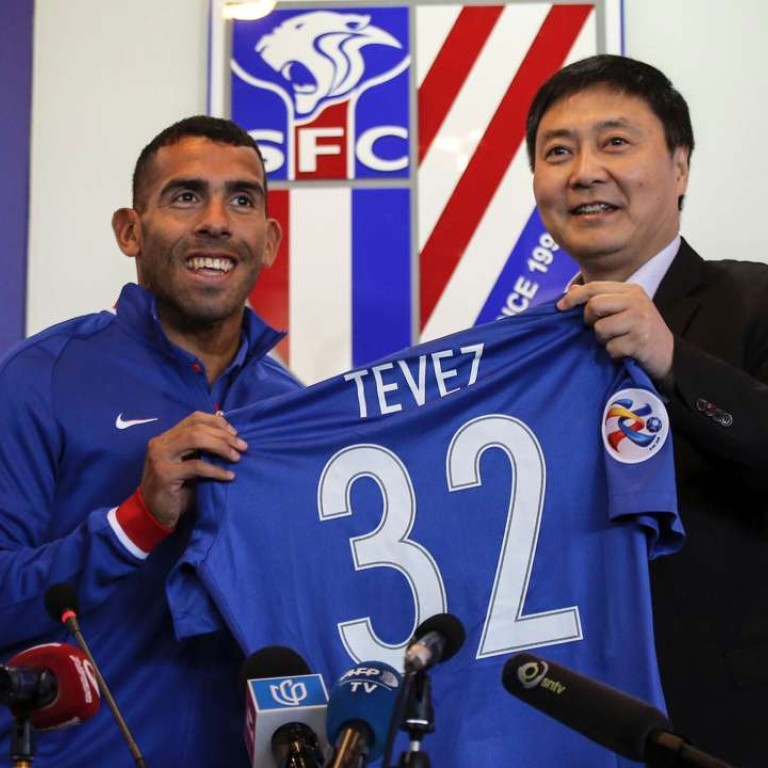
Big spending is no answer for soccer
China’s best chance of one day winning the World Cup lies in a roots-up domestic strategy and will not come from splurging huge amounts on foreign players.
The huge amounts mainland soccer clubs have been splurging on foreign players was bound to attract officials’ attention. Limits on the number of imports were imposed and more measures have been foreshadowed. Spending at such levels is not sustainable, nor does it encourage domestic development of the sport. It makes more economic sense to nurture local talent.
Overseas stars will add excitement to the domestic Super League competition. But the deals have been so jaw-dropping that questions have been raised as to the wisdom of such spending. The US$41 million-a-year contract paid by Shanghai Shenhua for Argentine striker Carlos Tevez makes him the world’s highest-paid player. Among other deals is the US$60 million transfer fee Shanghai ISPG gave English Premier League club Chelsea for Brazilian midfielder Oscar.
Overseas club officials are worried that the deals could lead players to quit their teams for China, despite the Chinese domestic league being of a far lower playing standard. The Super League last year far outspent its overseas counterparts and billionaires, encouraged by President Xi Jinping’s desire that China become a soccer superpower by 2050, have been buying top-flight European clubs. But the amounts being spent have also raised concern at home about potential money-laundering while the influx of foreigners means local athletes have a diminished chance of getting onto teams. Under the new rule, match squads can have no more than three foreign players and at least two members have to be Chinese under 23s, toughening regulations that five, including one Asian, could be from overseas.
Restrictions restrain trade and are not in the interests of soccer. A better approach is for the books of clubs to be properly audited and the introduction of penalties for spending on players beyond a specified limit. Identifying and training talented young Chinese using experienced coaches and top-class facilities is a better approach. China’s best chance of one day winning the World Cup lies in a roots-up domestic strategy.

